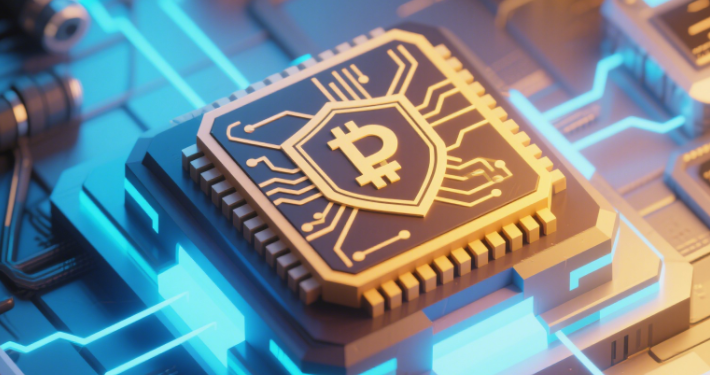In an era where digital privacy is increasingly under threat, virtual privacy coins have emerged as a transformative force in the cryptocurrency space. These decentralized digital assets prioritize transactional anonymity, challenging the transparency-centric norms of traditional blockchain networks like Bitcoin and Ethereum. This article explores the mechanics, advantages, challenges, and future outlook of virtual privacy coins, shedding light on their role in reshaping financial freedom and regulatory frameworks.
Understanding the Mechanics of Virtual Privacy Coins
Virtual privacy coins employ advanced cryptographic techniques to obfuscate transaction details, including sender identities, recipient addresses, and transaction amounts. Unlike Bitcoin, whose blockchain is fully transparent, privacy coins like Monero, Zcash, and Dash utilize technologies such as ring signatures, zero-knowledge proofs (zk-SNARKs), and stealth addresses to ensure anonymity. For instance, Monero’s Ring Confidential Transactions (RingCT) blend multiple users’ transactions to obscure the origin of funds . Zcash takes a different approach with zk-SNARKs, allowing users to prove the validity of transactions without disclosing sensitive data . These innovations provide a layer of financial privacy unattainable by mainstream cryptocurrencies.
The demand for such anonymity stems from growing concerns over surveillance capitalism and government overreach. Privacy coins offer users control over their financial data, particularly in regions with oppressive regimes or unstable economies, where traditional banking systems may be inaccessible or unreliable .
The Advantages and Challenges of Virtual Privacy Coins
Advantages
- Financial Sovereignty: Privacy coins empower individuals to transact without exposing their financial activities to third parties, fostering autonomy in an increasingly interconnected world.
- Security Against Data Breaches: By eliminating personal data from transaction records, privacy coins reduce the risk of sensitive information falling into malicious hands during cyberattacks.
- Global Accessibility: In regions with strict capital controls, privacy coins enable cross-border transactions without intermediaries, bypassing bureaucratic hurdles.

Challenges
- Regulatory Scrutiny: The anonymity features of privacy coins have raised concerns about their potential misuse in illegal activities like money laundering and tax evasion. The EU, for example, proposed legislation in 2025 to restrict privacy coin transactions, requiring exchanges to implement strict KYC/AML measures and limit anonymous transfers above certain thresholds . Similar regulatory pressures exist in the U.S. and Asia, forcing exchanges to delist privacy coins to comply with local laws .
- Market Volatility: Regulatory uncertainty has contributed to significant price fluctuations for privacy coins. For instance, Monero’s price experienced volatility in 2025 amid EU legislative debates, though its community-driven development and technical upgrades helped stabilize its position .
- Balancing Privacy and Compliance: Developers face the challenge of maintaining robust privacy features while addressing regulatory demands. Projects like Zcash offer hybrid solutions, allowing users to choose between transparent and private transactions, striking a balance between anonymity and accountability .
Technological Innovations Reshaping Privacy Coins
To counter regulatory pressures and enhance usability, privacy coins are undergoing rapid technological evolution. Monero’s 2025 upgrade to Bulletproofs 2.0 improved transaction efficiency by 30%, reducing block size and confirmation times while maintaining anonymity . Additionally, the integration of quantum-resistant cryptography aims to future-proof privacy coins against emerging threats from quantum computing . These advancements not only solidify Monero’s leadership in the privacy space but also set a benchmark for competitors.
Other projects are exploring decentralized governance models to resist regulatory interference. For example, Monero’s community proposed a decentralized 自治 (DAO) framework to ensure decision-making remains in the hands of users rather than centralized entities . Such initiatives highlight the resilience of privacy coin ecosystems in the face of external pressures.
The Future of Virtual Privacy Coins
Despite regulatory headwinds, the demand for financial privacy is unlikely to diminish. As digital surveillance grows, privacy coins may attract a broader audience, including individuals seeking to protect their wealth from inflation and geopolitical instability . Analysts predict that by 2025, privacy-focused cryptocurrencies will carve out a niche market, driven by advancements in compliance-friendly solutions and institutional adoption .
However, the trajectory of virtual privacy coins hinges on their ability to navigate regulatory landscapes. Projects that successfully balance anonymity with transparency—such as hybrid models or partnerships with regulatory bodies—may thrive. Conversely, those that resist compliance risk marginalization.
Conclusion: The Unyielding Quest for Financial Privacy
Virtual privacy coins represent a bold experiment in redefining financial sovereignty. While they face significant challenges from regulators and public skepticism, their technological innovations and grassroots support underscore their enduring relevance. As the cryptocurrency ecosystem evolves, privacy coins will continue to push the boundaries of what’s possible in digital transactions, advocating for a future where privacy is not a privilege but a fundamental right.
For the latest insights into virtual privacy coins, market trends, and secure trading strategies, visit Bitora, your trusted partner in navigating the decentralized finance frontier. Stay ahead of the curve with our comprehensive analysis and real-time data—because in the world of privacy coins, knowledge is the ultimate shield.
Disclaimer: This article is for informational purposes only and does not constitute financial advice. Always conduct thorough research before investing in cryptocurrencies.



























